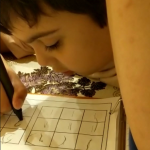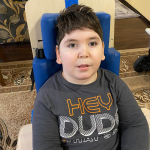Autism and the Stomach (Digestive System): Is There a Connection Between Them?
Autism Spectrum Disorders (ASD) are typically characterized by communication difficulties, repetitive behaviors, and other symptoms. However, recent interest has arisen among doctors and scientists regarding the functioning of the digestive system in individuals with autism.
There is no compelling evidence suggesting that ASD directly causes gastrointestinal (GI) issues or vice versa, but it is believed that individuals with autism may experience more frequent GI problems such as constipation, diarrhea, and reflux. While not everyone with autism faces these complications, it is likely that the proportion of individuals with both autism and GI issues is higher compared to the general population.
Challenges in Diagnosis
A timely diagnosis is not always possible, as some individuals with autism may not have verbal communication or may have limited vocabulary and difficulty expressing their symptoms. While they can often use nonverbal communication effectively in daily interactions, it is often insufficient when visiting a doctor.
Biological Mechanisms of Autism and GI Problems
Biological mechanisms that could explain the connection between autism and GI issues, as well as the connection between the brain and the gut, are of particular interest. The gut contains a large number of bacteria (collectively called the microbiota) involved in digestion and overall well-being. Some researchers believe that autism and GI diseases could both contribute to changes in the microbiota.
Sensory Sensitivity and Diet
One of the most common sensory sensitivities in autism is an excessive reaction to certain foods. Many individuals with autism prefer specific foods, often guided not by taste but by smell or even the color of ingredients. This results in a significantly limited diet, which can lead to gastrointestinal problems. Furthermore, a lack of key vitamins and minerals, typically found in vegetables rather than processed foods like pasta, can exacerbate digestive issues.
Gastrointestinal Discomfort and Behavioral Issues
Gastrointestinal discomfort can lead to behavioral issues, such as self-stimulatory behaviors or aggression. The patient’s condition can only be normalized once the underlying cause of the discomfort is addressed, though it is unlikely that the therapist’s primary focus will be on identifying and solving GI problems. This will likely require the intervention of a gastroenterologist.
Current Research and the Need for Specialist Visits
Studies are still being conducted to uncover a direct relationship between autism and GI diseases, but results so far have been inconclusive. There is indirect evidence suggesting that digestive issues are more common in individuals with autism, but it is unclear why this occurs. Therefore, regular visits to a specialist who can conduct an examination and provide consultations are important for maintaining overall well-being.
Cellular Therapy: A Solution for Both Brain and Gut Issues
Even if autism and gastrointestinal diseases are not directly related, addressing the brain and nervous system is still crucial. The most effective way to normalize their functioning is through cellular therapy, an innovative technology that has recently been applied in practice. This method has gained widespread recognition due to its ability to address autism naturally or at least reduce the severity of symptoms.
Cellular therapy involves the transplantation of the patient’s own stem cells, which do not trigger immune rejection. These stem cells transform into healthy analogs of damaged cells, effectively replacing them. This process results in a long-term positive effect that becomes apparent soon after the procedure and lasts for years, often for life, improving the outcomes of supportive therapies. This method is safe, reliable, and effective, and can be performed at nearly any age.
Cellular Therapy: A Future-Oriented Solution Today
Cellular therapy has become a powerful tool in the fight against autism and is now used in leading medical institutions around the world, including the Mardaleishvili Medical Center. Experienced specialists at this center use state-of-the-art equipment to perform the procedure, and the clinic offers affordable services compared to other countries with advanced healthcare systems. Additionally, the center provides full support, from trip planning to accommodation arrangements.
Cellular therapy is the technology of the future that is helping individuals today!
Autism Treatment Center Videos
Autism treatment with own stem cells
Cord blood association congress
International Quality Crown
Autism Treatment Reviews
Autism treatment with own stem cells
The story of Alessandro (6 years old)
Autism Patient Testimonial - Stem Cell Treatment
Clients Testimonials

Feedback from Igor, David’s father (12 years old) Read More

Feedback from Olga, Fedya’s mother Read More

Feedback from Natalia, Radomir’s mother (15 years old) Read More

Feedback from Esther, Samuel’s mother (8 years old) Read More

Feedback from Abibe, Selim’s mother (7 years old) Read More












